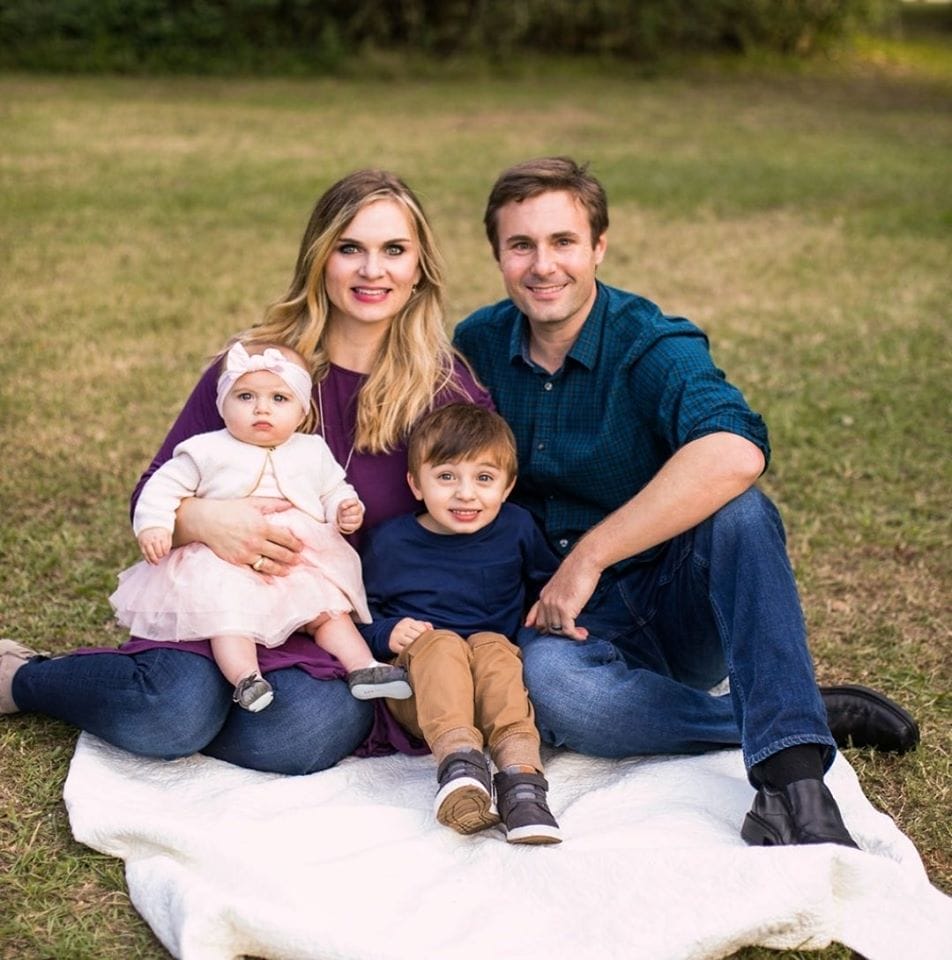Hi, I’m Jessica
My daughter, Annie, is the first deaf person I have ever met. Prior to her birth, I did not know a single thing about deafness or hearing loss other than the obvious, and my beliefs about deaf individuals were largely outdated. All of this changed after Annie was born last year, and we received her hearing loss diagnosis.
Annie’s Diagnosis
Barely three weeks after her birth, my husband and I were told Annie has congenital sensorineural hearing loss. This means Annie had never heard our voices. She had never heard the sound of her own name or the words, “I love you.” When she was first diagnosed, I could not even say the word “deaf” out loud, and it felt like the wind had been kicked out me every single time I heard someone else say it. I was so fearful of what that word meant and what it meant for my daughter’s future. I did not know a single thing about deafness or hearing loss. I felt so unprepared and unequipped for the journey that lay ahead.
This was not what I had planned. This was not the life that I had imagined for my daughter.
I barely even remember the days and weeks that followed as I grieved and mourned the loss of my daughter’s hearing. Feelings of complete shock and denial hit me first; then came bargaining with God, anger, guilt, and then the deep soul crushing sadness. I remember crying night after night so hard I could hardly breathe. Family and friends never sure of what to say and not quite understanding of what I needed. Many people avoided the topic altogether awkwardly ignoring the enormous elephant in the room. Perhaps they were afraid to say the wrong thing, but I was left screaming inside and feeling so angry, desperate, and alone. Others would try to assure me and say, “Don’t worry, she can hear just fine,” and “Just be thankful she is healthy,” and “At least you won’t have to pay for her college.” All of which left me gasping for air once more.
Adaptation and Acceptance
Amidst the darkness, there is Annie and her beaming bright light that illuminates our path forward. I also have my husband who loves with such fierce protectiveness and loyalty, and our 4-year-old son, Parker, who loves deep and feels much deeper than most. Parker sees that his sister is different but immediately became an agent of acceptance. And while my circle of close family and friends has changed and become much smaller, these relationships have become even more precious to me and ones I will forever cherish.
Perhaps one of the greatest gifts of this journey has been the friendships I have made with other mothers of deaf and hard of hearing children. When you have a child with an invisible disability like hearing loss, the rest of world doesn’t understand the challenges. While my family and close friends can be supportive, it is still hard for them to comprehend what this life is like. It is hard for people to relate if they have never felt this same pain or know the immense joy that comes each time the smallest milestone is achieved. This is a secret world, and only those who are on similar journeys of hearing loss can truly understand. Connecting with other mothers who know exactly what this journey is like is meeting a stranger for the first time after seeing a reflection of your own life in theirs, and instantly you hear them whisper “Me too. I get it. You are not alone.”
Being a member of this village, this special tribe of mothers, has truly been one of the greatest gifts Annie has given me.
I never thought my journey of motherhood would include having a child born with such a rare and unexpected diagnosis of profound hearing loss. I certainly never planned for this, nor did I ever imagine this life for my daughter. While the loss of her hearing is a very significant loss and the pain of that will never go away, I must remind myself daily that Annie will emulate what I create and how I react and adapt. I have to choose to embrace the uncertainties of this journey and enjoy the beauty that is becoming. In doing so, I believe Annie will not only adapt but she will thrive in ways I never knew were possible.
***Jessica lives in Houston, Texas with her husband, Matt, two children (Parker-4 years and Annie-10 months), and their golden retriever, Rocky. Jessica describes herself as an introverted extrovert who loves connecting with others but also craves time alone to decompress, reset, and catch up on sleep! You can follow her on Instagram @jessica.anne.bolt***
Not ready to dive in yet? No problem!
Subscribe to my newsletter to receive regular doses of inspiration. No spam, ever. Promise.








